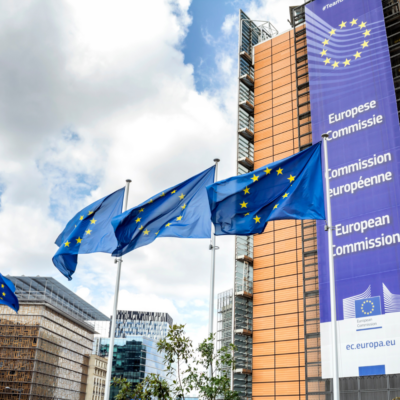14 October 2025
UFE’s reply to the EC consultation on the CO2 Standards for cars

1. Keep the integrity of the CO2 emissions reductions targets by 2035
While transport GHG emissions account for a third of EU’s GHG emissions, CO2 standards appear to be the best tool for decarbonising LDVs:
- It provides the regulatory predictability needed for the industry to confidently invest in the development of ZEVs, by implementing a clear CO2 emissions reduction trajectory by 2035. This trajectory has contributed to a CO2 emissions reduction of new passenger cars in recent years, that dropped by 28% between 2019 and 2023 according to the EEA. The main driver of this reduction is the surge of EV sales observed since 2020.
- The 2035 target is a vital step towards achieving carbon neutrality in the transport sector by 2050, considering that the average lifetime of an ICE car is around 15 years.
- As the regulation adopts a technology neutral approach based on emissions reduction targets, all ZEVs could be considered for reaching the objectives.
UFE therefore strongly believes that the current framework should be maintained. Go back on the 2035 target would severely undermine industry confidence, jeopardise years of investment planning from the electromobility ecosystem and hinder the electrification of uses, which has stagnated over the past fifteen years, despite being recognised as a key priority in the EU strategy. It would at the same time undermine the EU’s long-term competitiveness in the global automotive market, by falling behind non-EU manufacturers that are moving swiftly towards electrification, notably from China.
Furthermore, UFE urges the Commission not to include additional flexibilities for target compliance, such as assessing compliance with the 2030 target on multi-years averages Otherwise, it would weaken the cars and vans decarbonisation pathway, as more high-emitting vehicles would get on the roads early on and would keep emitting more emissions throughout their lifetime.
2. Prioritise investments in the most efficient technologies to decarbonise the LDV fleet: BEVs
UFE strongly believes that only ZEVs should be considered for achieving the 2035 target. No technical or economical reason justifies reopening the regulation to reconsider the role of e-fuels, biofuels, PHEVs and REEVs in the decarbonisation of LDVs. Investments should be prioritise in BEVs, because they are the most efficient technology to decarbonise the LDV fleet, whether in terms of GHG emissions reduction (even when considering an LCA), air pollution mitigation, energy efficiency, and costs for the consumers and the energy system (notably when smart charging solutions are available). For instance, four times more primary energy is needed for a vehicle powered by e-fuels compared to a BEV to travel the same distance. Concerning biofuels, there are major constraints on their development due to lack of availability of resources and competition with other sectors for access to biomass materials.
- E-fuels/biofuels should be reserved in sectors where direct electrification is not feasible, e.g. some heavy-duty transport segments, aviation and industry.
- The role of PHEVs should not be reconsidered, to prioritise BEV deployment.
3. Ensure adequate demand for manufacturers
Any electrification trajectory should be backed by measures to ensure adequate demand for manufacturers while helping the most vulnerable to access electromobility, notably:
- Adopting ambitious fleet renewal quotas of EVs for corporate fleets.
- Redirecting revenues from excess emissions premiums to finance demand support mechanisms at EU or MS level for the purchase of BEVs (e.g. social leasing).
Find out more
06 January 2026
Electrification Action Plan


About us
The Union of the French Electricity Industry is the trade association of the French electricity sector. We bring together companies from the whole value chain of the electricity industry.
Find out more










